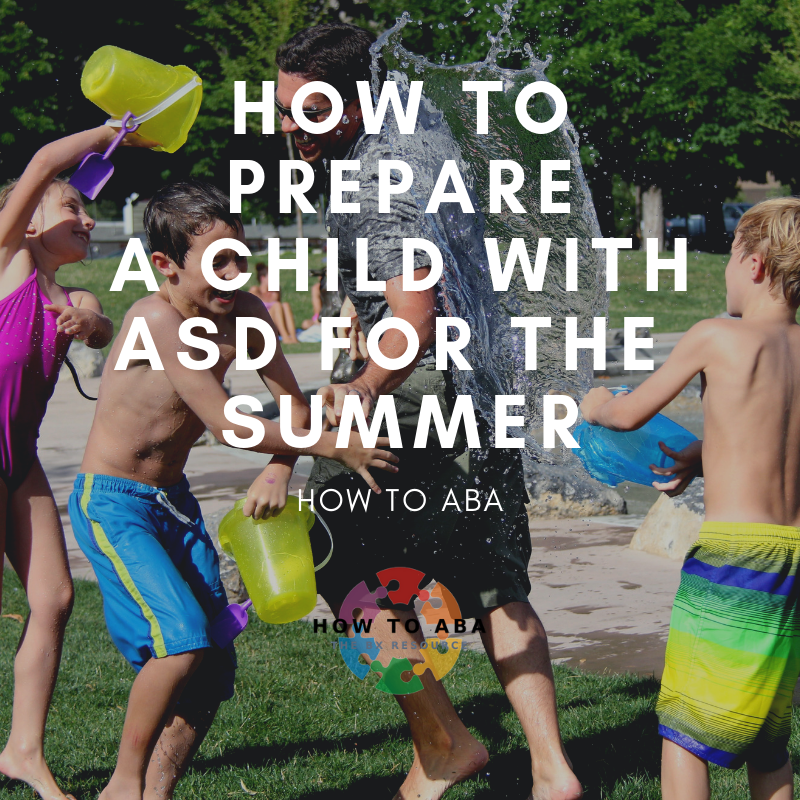I love the summer. I love the change in seasons, the break from the monotonous everyday routine, the relaxing vacations, and the long days. However, for many of the kids we work with, the changes that come along with summer can be very overwhelming.

By the end of the school year, many children are just getting to a good place in their classrooms where they’ve learned the routines and are comfortable in their environments. They’ve gotten to know their teacher and their friends and have FINALLY stopped crying when mom or dad says good-bye. All this beautiful calm is about to be traded for the chaos of summer.
For a child with ASD, summer means unpredictability. Summer means unexpected routines and last minute plan changes. Summer means new people, new places, and a lot of unknown. This can be very overwhelming.
How can you help prepare a child with ASD for the summer?
Visuals, Visuals, Visuals
Did we say visuals? Visual schedules can make a new routine a little more predictable. Give the child a schedule with what to expect over the course of the day. Ideally, the child is okay if things get moved around at the last minute, but the visual schedule is a good base to start from. “First you’ll go to camp, then you’ll see your counsellor, then you’ll go swimming, etc.” Use text for children who can read and pictures for children who can’t. Ideally, get some actual pictures of the camp or new setting before the fist day so you can review it with your kiddo. If the child can’t handle a long daily schedule, use a simple “first/then” board and keep changing up the activities.
Independent Skills
Supervision might be scarce during the summer. Young counsellors may mean well, but have a different skill set than experienced teachers. For the weeks before camp, work on increasing your client’s independence skills as much as you can. Practice getting changed for the swimming pool or have your client practice getting his lunch and eating it without help. The more a child can do and feel good about doing, the more confident they will feel throughout the day.
Social Skills
My daughter started a camp last summer in the middle of the session and was absolutely devastated that all the other kids knew the camp song and she didn’t. Social time is a big part of summer camp. If your client doesn’t know what’s going on, this could be a cause for a meltdown or for feeling isolated. In the weeks before camp, teach your child what they need to know to be successful socially. If the child is going to soccer camp, fine-tune his soccer skills. Learn the latest video game trend and get your client in on it. Invite some kids who will be in camp with the child over for a playdate. Find out what the camp’s songs and cheers are and teach them to your kiddo before the first day. Preparation is halfway to success.
Teach Regulation Skills
A camp day has a lot less structure than a school day and can be a lot more chaotic than a classroom. Teach your child some strategies that will help get them through an overwhelming day. Strategies like: asking an adult for help, knowing when and how to take a break and calm down, or other regulation tools (Click here for more tips on emotional regulation). You can also include some reinforcement for staying regulated at camp. We’ve had success sending students off to camp with a cue card in their pocket with the “rules of camp” and if they kept the rules, they could get an ice cream at the end of the day!
With a lot of planning and some preparation, summer can be a fun experience for any child (ASD or other)! Watch our YouTube video below!

